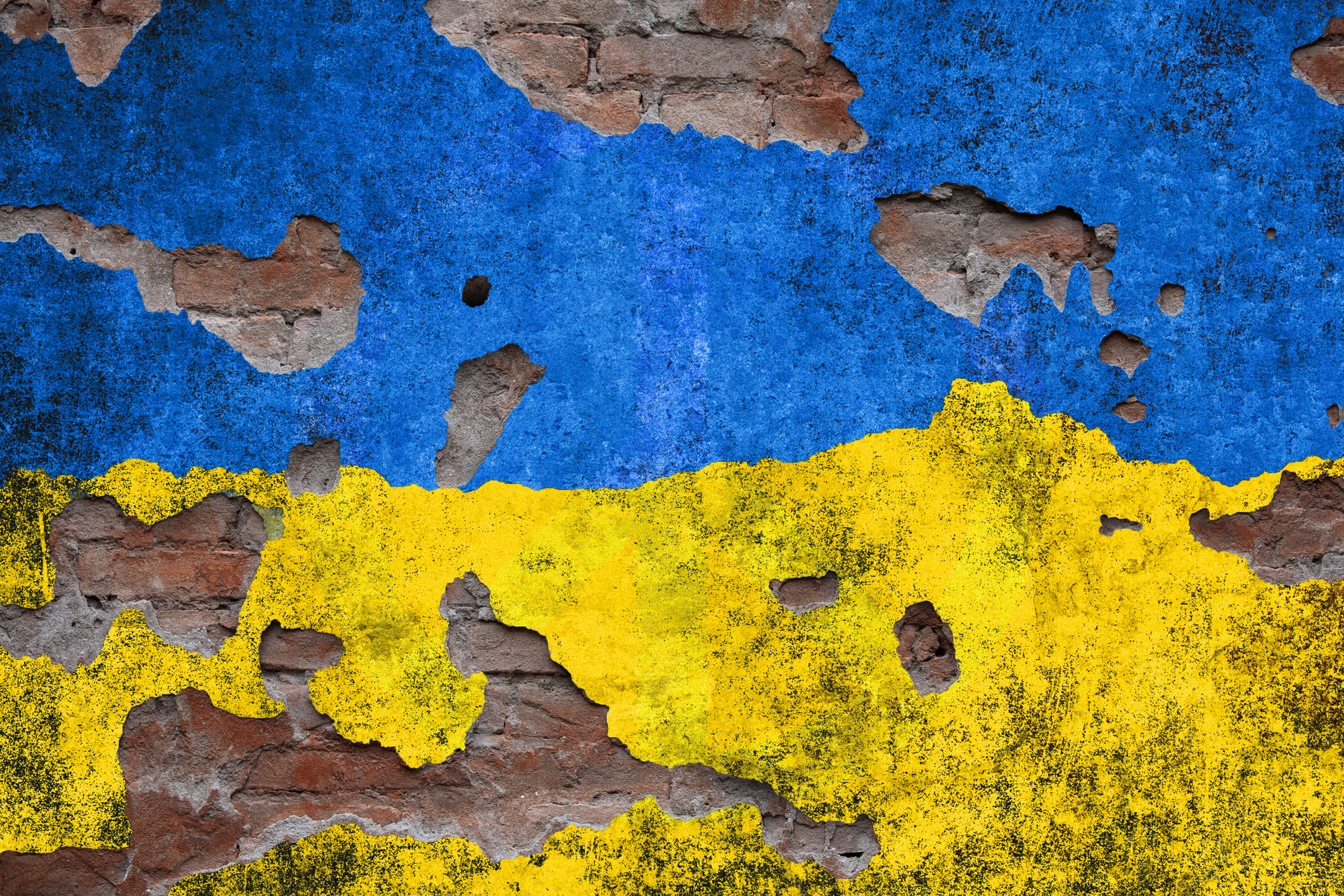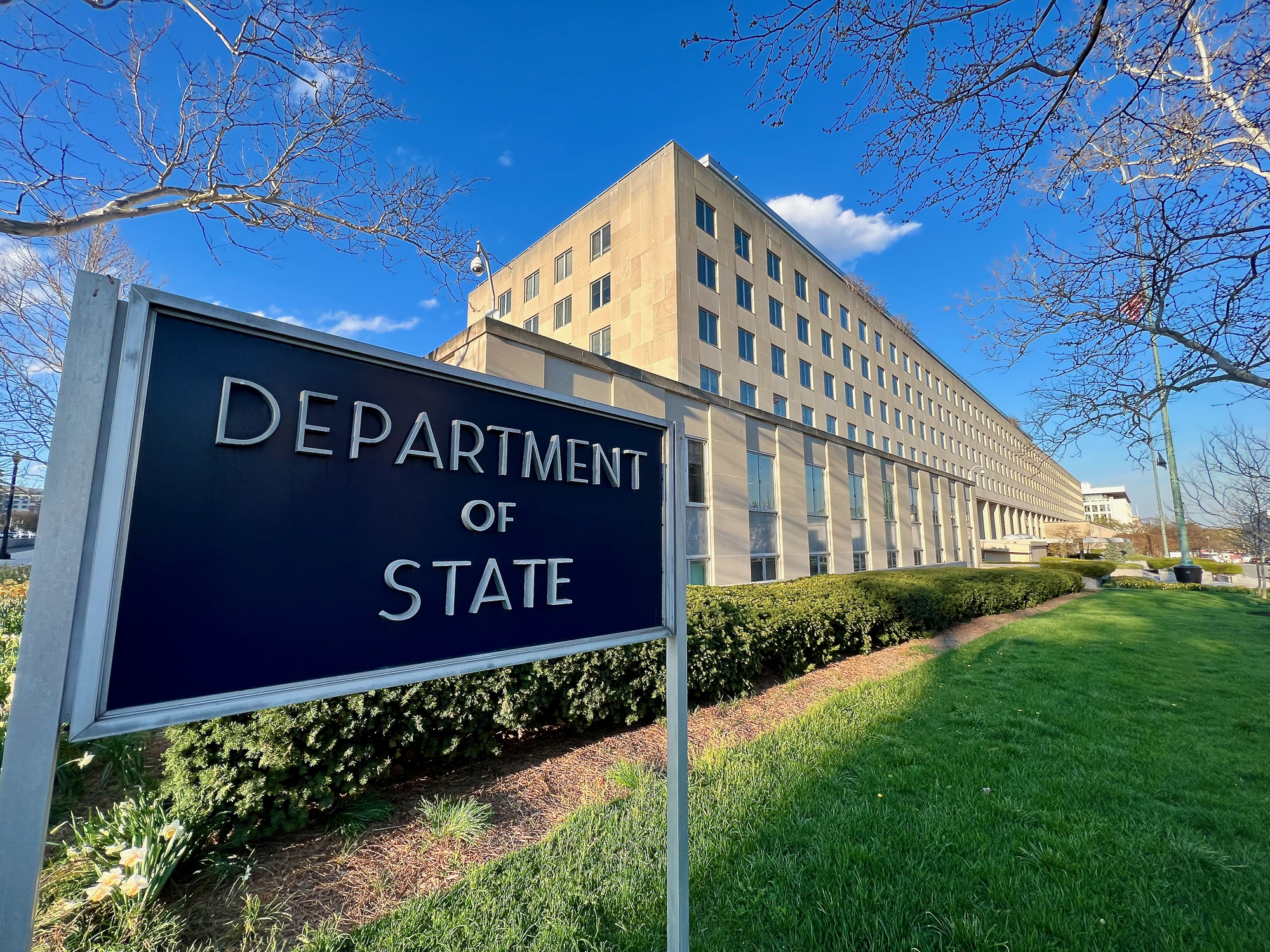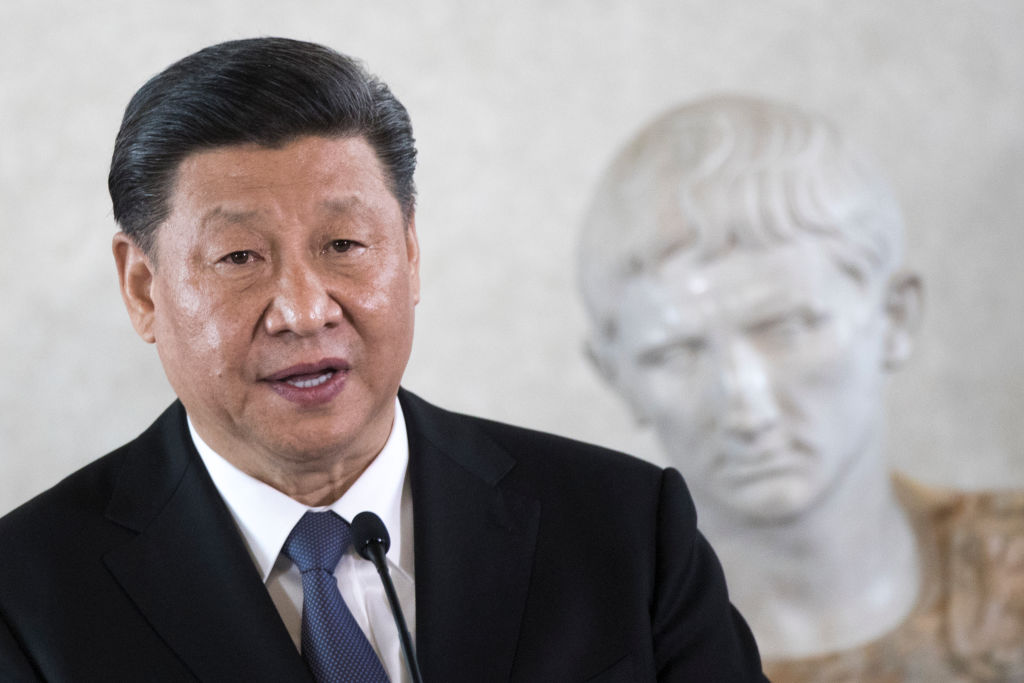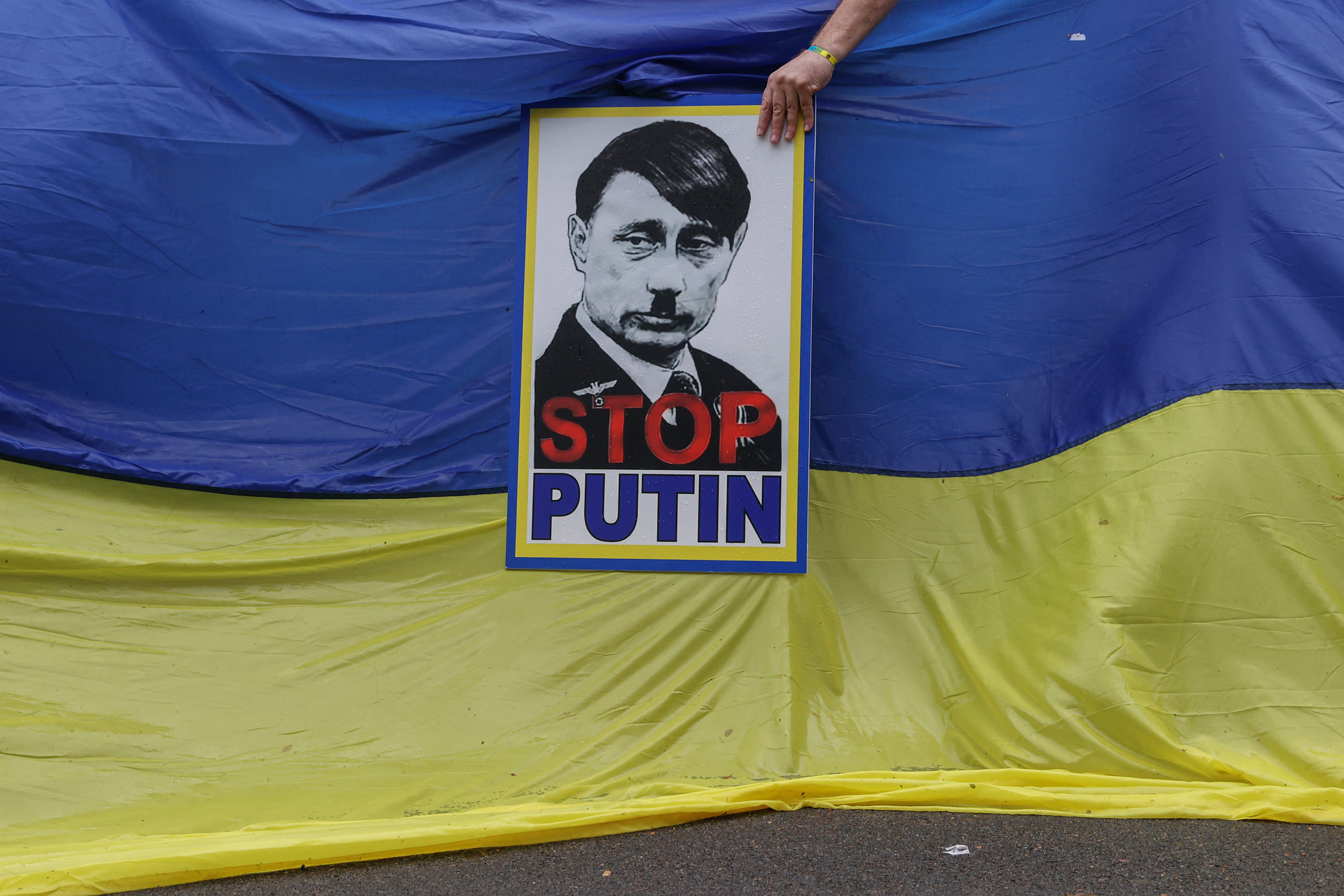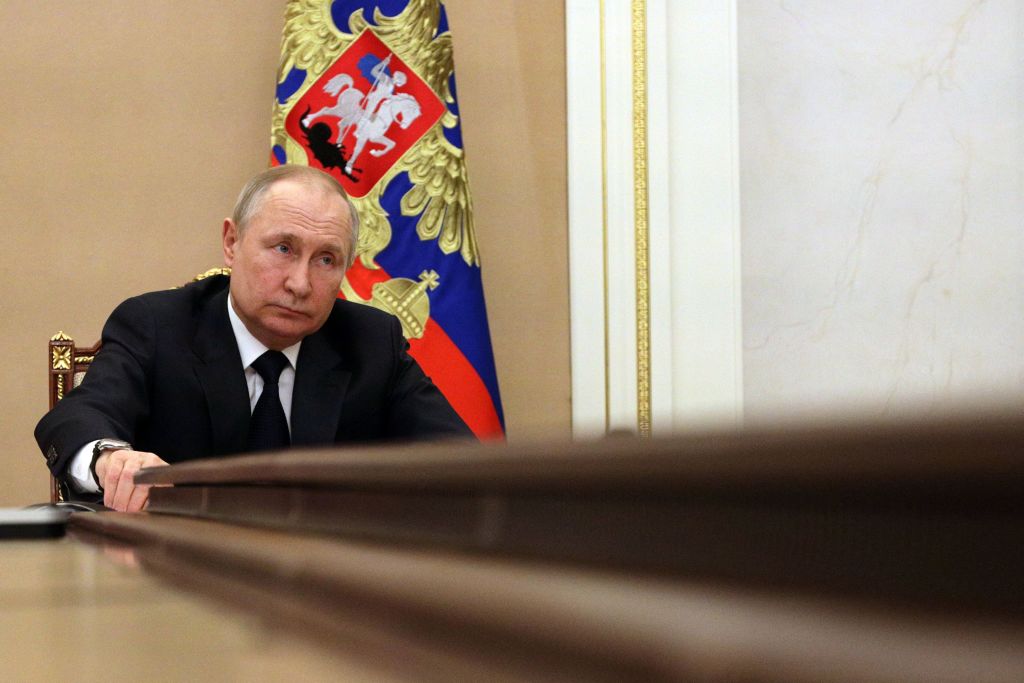Moralism, utopianism, and denunciations of all things Russian are not the answer in the present fight.
Ukraine and American Empire
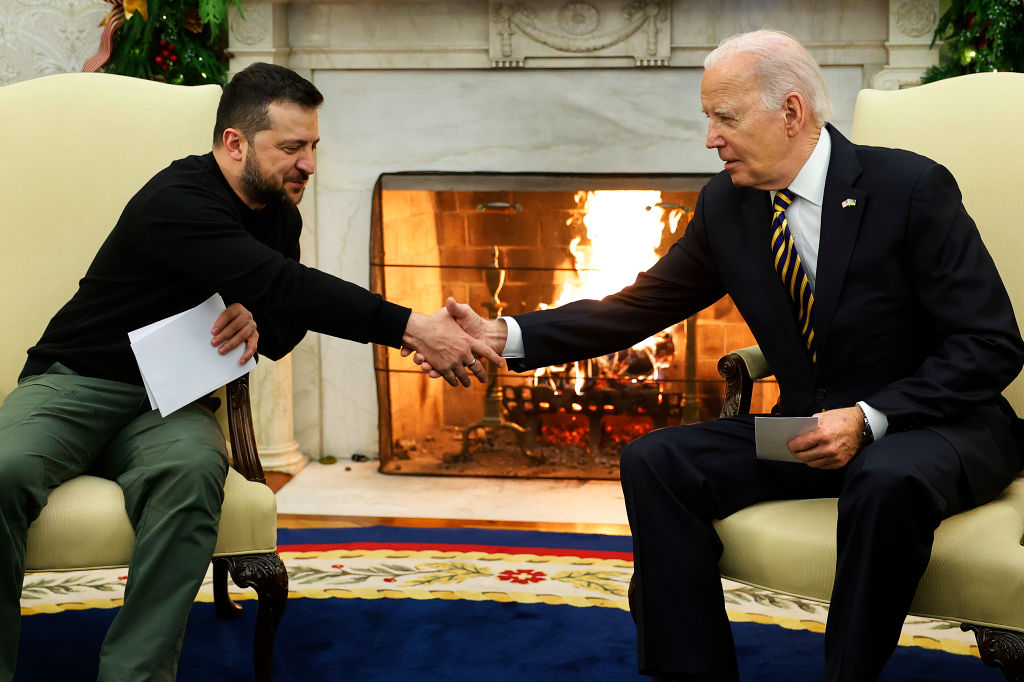
Zelensky’s position is getting more untenable by the day.
The resolve of Republicans like Senator J.D. Vance to deny Ukraine further funding absent serious measures to address the unprecedented situation at the U.S. southern border is worth cheering about. It represents a semblance of backbone in a party that has otherwise failed to stand up for the American citizens to whom they are supposed to be beholden. Above all, this is an important development, because it suggests that a small but nonetheless growing group of politicians are increasingly willing to reject the establishment consensus on American Empire.
This comes as Ukrainian President Volodymyr Zelensky visited the United States yet again, desperately pushing for more funding. Nonetheless, Zelensky’s reception in the U.S. this time around was notably icy, especially compared to the (Ukraine) flag-waving histrionics from both Democrats and Republicans during his joint-session speech in Congress last December. This year, Zelensky had a private meeting with U.S. senators and a brief sit down with House Speaker Mike Johnson. President Biden committed $200 million in additional aid, much less than the $45 billion that Zelensky walked away with last year.
One reason for the chilly reception is that the much-vaunted Ukrainian counteroffensive has resulted in negligible territorial gains. Kiev is now entirely reliant on outside funds.
But the cheerleaders for American Empire are still undeterred. A recently-released declassified intelligence report claims that Russia has lost 90 percent of its prewar army. Every U.S. establishment publication has gladly accepted that number and subsequently run with it as proof that Moscow’s forces can be ousted from eastern Ukraine given the requisite funds and weapons.
Even with a wide-open spigot of cash and weapons, however, Ukraine does not have the manpower to defeat Russia. Its most adamant defenders are slowly admitting this reality. Even if U.S. intelligence reports—which should be met with a healthy dose of skepticism—are accurate regarding the numbers on Russian losses, Kiev is almost certainly suffering casualties at an attrition rate at least comparable to, if not higher, than Russia, while only having one-third of the latter’s population. On November 24, President Zelensky instructed his military leadership to draw up yet another mobilization plan. Clearly having trouble replenishing the ranks, Kiev is expanding the scope of who is eligible for recruitment, including women (on a voluntary basis, as they are still not being drafted) and convicted criminals. Ukrainian military officials are now proposing to mobilize another 450,000 to 500,000 people, although Zelensky has yet to commit to that number.
Meanwhile, Russia’s military industrial capacity is immense. Its missile production has now surpassed prewar levels. Its industrial growth rate beat predictions and expanded as a result of the nation’s booming war production (industrial output increased by 1.2 percent, contrary to Western expectations that it would decrease by 1.4 percent). Its defense and military technology related sectors have expanded as well.
And it still has enormous capacity to mobilize men. On November 27, Putin officially approved an additional increase in military spending that will now allot about 30 percent of the nation’s entire fiscal expenditure to its armed forces through 2024. Russian defense spending is subsequently predicted to rise nearly 70 percent from 2023 to 2024. The Russian economy has likewise weathered the Western sanctions regime; the ruble continues to perform well; and energy exports—led by its Ural’s oil blend, which continues to trade above the $60 price cap the Group of Seven imposed last year—provide a reliable stream of revenue.
An honest assessment of the situation suggests that Kiev should be making concessions to quit prolonging the bloodshed and end the conflict. However, this is unlikely to happen.
Though it may be feasible for Russia to shun peace and continue whittling the Ukrainian military down, thus securing all of its strategic objectives, Zelensky may also be just as unlikely to pursue an end to hostilities. For one, he knows that his position in power is extremely tenuous if the conflict comes to an end short of maximalist gains. Add to that the various draconian measures he has enacted under the auspices of the Ukrainian war effort (as even the New York Times is now being forced to admit), and the potential of him fleeing the country upon the cessation of hostilities becomes even more likely.
The mayor of Kiev, Vitali Klitschko, recently told German media outlet Der Spiegel that Ukraine’s government is increasingly coming to resemble Russia, “where everything depends on the whim of one man.” A rift between Zelensky and the commander of Ukrainian armed forces, General Valery Zaluzhny, continues to widen as well. The fact that even pro-Ukrainian sources are now publishing stories to this end suggests that opposition to Zelensky’s approach to the war is indeed growing, making his presidency less secure by the day.
This is all the more consequential given the fact that Zelensky was willing to discuss the prospect of Ukrainian neutrality in March 2022, barely a month after the outbreak of hostilities. However, Kiev was steadfast in its refusal to cede any territory to Russia. No one will ever know if Moscow would have been willing to negotiate an autonomous status for the eastern oblasts of Ukraine (Lugansk, Donetsk, Zaporizhzhia, and Kherson), which would have been largely in keeping with the Minsk Accords, of which the Kremlin was at least as amenable as Ukraine. Indeed, it was only after Kiev backtracked on the possibility of neutrality and ended the peace talks that Russia moved forward with officially annexing the oblasts in September 2022.
Clearly, another factor in Zelensky’s calculus led him to believe that better terms could be secured. It has become increasingly apparent that Kiev was actually dissuaded from its ongoing negotiations with Russian leadership due to the support of Western leaders. It is probable that they told Zelensky that Western support would be guaranteed if he kept up the fight (although it’s quite possible that they threatened to replace Zelensky should he not withdraw from negotiations with Russia). Regardless, it was clear from the beginning that Kiev could not achieve its maximalist gains, even with an open check book and advanced weaponry, short of foreign troops becoming engaged in the fight—though the latter may have very well been the hope of some from the beginning.
Regardless, Zelensky will be easy to paint as a Western puppet who needlessly sacrificed tens of thousands of Ukrainian lives to secure a worse outcome than what was proposed at the war’s outset. The Ukrainian population will slowly come around to the conclusion that their leaders have been doing the bidding of foreign nations, and their country has been a pawn in a great power struggle.
And that characterization is largely right.
Whether due to foreign pressure or not, the refusal to countenance a negotiated settlement will lead to an outcome for Ukraine that is much less favorable than the terms that were being discussed in early 2022. A dishonorable peace may be worse than an honorable defeat; however, that is simply not the case for Kiev. It was the influence of the transatlantic world that actively pushed its leadership to eschew a negotiated settlement, using it instead as a tool to weaken a geopolitical rival at the price of Ukrainian lives.
But it will be Zelensky alone who will have to answer for leaving the country a husk of its former self. Moscow will almost certainly maintain control over most, if not all, of the four eastern oblasts that it annexed. Ukraine’s fighting capacity will be significantly reduced at best, regardless of any discussion about NATO membership. It is also now much more likely that Russia will take an even greater portion of Ukraine. At the most extreme, it could even eventually push northwest toward Kharkov after Moscow’s retreat last year, or attempt to move further along the Black Sea coast into the Mykolaiv oblast and toward Odessa.
Despite this reality, some nonetheless still hold to a flawed realist argument that the United States should continue to provide Kiev with more and deadlier weaponry since the proxy war is advantageous to American national security. This begs the question if Russia would really be more likely to invade a NATO member if it accomplishes its objectives in Ukraine. Those who answer yes believe that any type of concession is synonymous with appeasement, and that Putin playing the part of Hitler will simply continue to seize more territory until he is forcibly stopped. “If Putin takes over Ukraine, he’ll get Moldova, Georgia, then maybe the Baltics,” said Republican House Foreign Affairs Chairman Michael McCaul. McCaul’s statement ran interference for U.S. Defense Secretary Lloyd Austin’s earlier warning to Congress that failing to grant Ukraine their requested funds would lead to American troops deploying to fight in Europe.
But again, is it really more likely that Moscow would be emboldened to strike a NATO member if the Donbass and Crimea are ceded to Russia? There is something to be said for the argument that the Western response to Moscow’s military operation in Eastern Ukraine has signaled firm resolve that the transatlantic alliance would live up to the collective security guarantee should Article 5 be triggered. However, there is no rational argument for why Russia would want to invade any NATO member, even if it could.
Any type of realist support for keeping the proxy war limping along has reached a point of diminishing returns. The only people still urging Ukraine to continue the fight are the idealogues of American Empire. Ironically, they are thus also the most honest observers of the present conflict. They acknowledge that Russia’s victory will be a staggering blow to the imposition of liberal democracy on the rest of the world. With the war’s likely outcome becoming clearer every day, and the potential ouster of a geopolitical actor in Zelensky whom the Empire has poured so much capital into promoting as the face of ideological struggle, the priestly class of American foreign policy is undoubtedly entering a time of desperation.
One should keep this in mind when considering the presidential candidates that those institutions subsequently support, and also appreciate the importance of Republican fortitude in standing firm against the pressure that those institutional actors are able to exert.
The American Mind presents a range of perspectives. Views are writers’ own and do not necessarily represent those of The Claremont Institute.
The American Mind is a publication of the Claremont Institute, a non-profit 501(c)(3) organization, dedicated to restoring the principles of the American Founding to their rightful, preeminent authority in our national life. Interested in supporting our work? Gifts to the Claremont Institute are tax-deductible.
Leading neoconservative arguments for continuing U.S. involvement in Ukraine miss the mark.
The U.S. should double down on its support of Israel.
Taiwan, Xi Jinping, and America’s year of danger
There is no moral equivalence between Ukraine and Russia, but neither country is Nazi Germany.
Time is a weapon of war.

